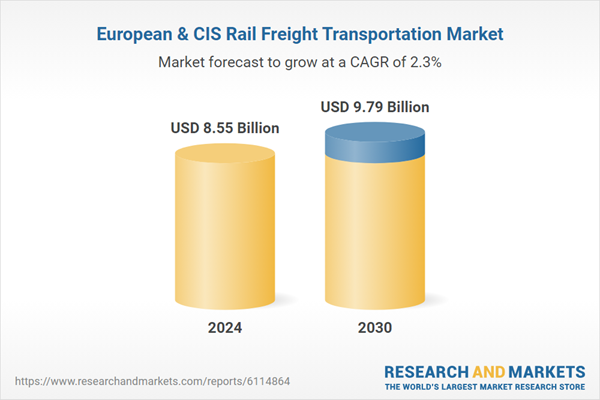Speak directly to the analyst to clarify any post sales queries you may have.
10% Free customizationThis report comes with 10% free customization, enabling you to add data that meets your specific business needs.
Market Drivers
Modernization of Railway Infrastructure
The modernization of railway infrastructure is a key driver for the growth of rail freight transportation, enhancing efficiency, capacity, and reliability across logistics networks. Upgraded tracks, advanced signaling systems, and electrification projects are transforming traditional rail corridors into high-performance freight routes. Investments in modern infrastructure allow for higher axle loads, faster transit times, and reduced maintenance disruptions, making rail a more attractive option for shippers.Enhanced terminals with digital coordination tools and automated handling equipment are improving intermodal connectivity and reducing cargo dwell times. Modernization efforts also contribute to improved safety, lower energy consumption, and better integration with smart mobility systems. These upgrades are often supported by national and regional funding programs, recognizing rail's strategic importance in reducing congestion and supporting economic growth. For instance, Poland is investing USD 2.8 billion from the EU Recovery Fund to modernize key railway corridors, focusing on track upgrades, electrification, and signaling to boost freight capacity, speed, and reliability.
Key Market Challenges
Infrastructure Modernization and Capacity Constraints
A significant challenge in rail freight transportation is the limited capacity and aging infrastructure that hampers service expansion and operational efficiency. Many rail networks continue to rely on outdated tracks, signaling systems, and rolling stock, which leads to frequent delays, speed limitations, and higher maintenance costs. As cargo volumes grow and demand shifts toward time-sensitive deliveries, existing infrastructure often struggles to accommodate heavier and faster trains.This bottleneck limits the frequency and flexibility of freight movement, reducing the attractiveness of rail compared to other modes. Investment in double-tracking, electrification, bridge strengthening, and terminal automation is necessary to enhance capacity, but such upgrades are capital-intensive and time-consuming. Network congestion in key freight corridors further disrupts schedules, creating inefficiencies for shippers and logistics providers. Balancing freight and passenger traffic on shared lines adds complexity, especially during peak hours or in densely trafficked zones.
Key Market Trends
Integration of Rail into Intermodal Logistics
Rail freight is increasingly becoming a central component of intermodal transportation strategies, offering a cost-effective and sustainable middle segment for long-distance cargo movement. Shippers and logistics providers are adopting rail as part of a multimodal approach where goods are moved seamlessly between ships, trucks, and trains. This integration enhances delivery speed and efficiency while reducing reliance on long-haul trucking, which often faces challenges like driver shortages, fuel costs, and congestion.Intermodal terminals equipped with modern cargo handling equipment and digital coordination tools are streamlining the transfer process between modes. The flexibility of combining rail with road or maritime transport enables better routing, higher capacity utilization, and more responsive supply chain management. This trend is also supported by smart tracking technologies that provide end-to-end cargo visibility, ensuring better planning and risk mitigation. The intermodal model is especially attractive for containerized goods, perishable items, and time-sensitive industrial cargo.
Key Market Players
- DB Cargo
- SNCF Group
- Rail Cargo Group
- PKP Cargo
- TX Logistik AG
- SBB Cargo International
- Green Cargo
- ČD Cargo
- Freightliner Group Ltd
- ZSSK CARGO
Report Scope:
In this report, the Europe & CIS Rail Freight Transportation Market has been segmented into the following categories, in addition to the industry trends which have also been detailed below:Europe & CIS Rail Freight Transportation Market, By Freight Category:
- Unit Trains
- Carload Freight
- Intermodal Freight
Europe & CIS Rail Freight Transportation Market, By Transport Area:
- International Transport
- National Transport
Europe & CIS Rail Freight Transportation Market, By Country:
- Germany
- Russia
- France
- Spain
- Italy
- United Kingdom
- Poland
- Rest of Europe & CIS
Competitive Landscape
Company Profiles: Detailed analysis of the major companies present in the Europe & CIS Rail Freight Transportation Market.Available Customizations:
With the given market data, the publisher offers customizations according to the company’s specific needs. The following customization options are available for the report.Company Information
- Detailed analysis and profiling of additional market players (up to five).
This product will be delivered within 1-3 business days.
Table of Contents
Companies Mentioned
- DB Cargo
- SNCF Group
- Rail Cargo Group
- PKP Cargo
- TX Logistik AG
- SBB Cargo International
- Green Cargo
- ČD Cargo
- Freightliner Group Ltd
- ZSSK CARGO
Table Information
| Report Attribute | Details |
|---|---|
| No. of Pages | 135 |
| Published | July 2025 |
| Forecast Period | 2024 - 2030 |
| Estimated Market Value ( USD | $ 8.55 Billion |
| Forecasted Market Value ( USD | $ 9.79 Billion |
| Compound Annual Growth Rate | 2.2% |
| Regions Covered | Europe, Russia |
| No. of Companies Mentioned | 10 |









